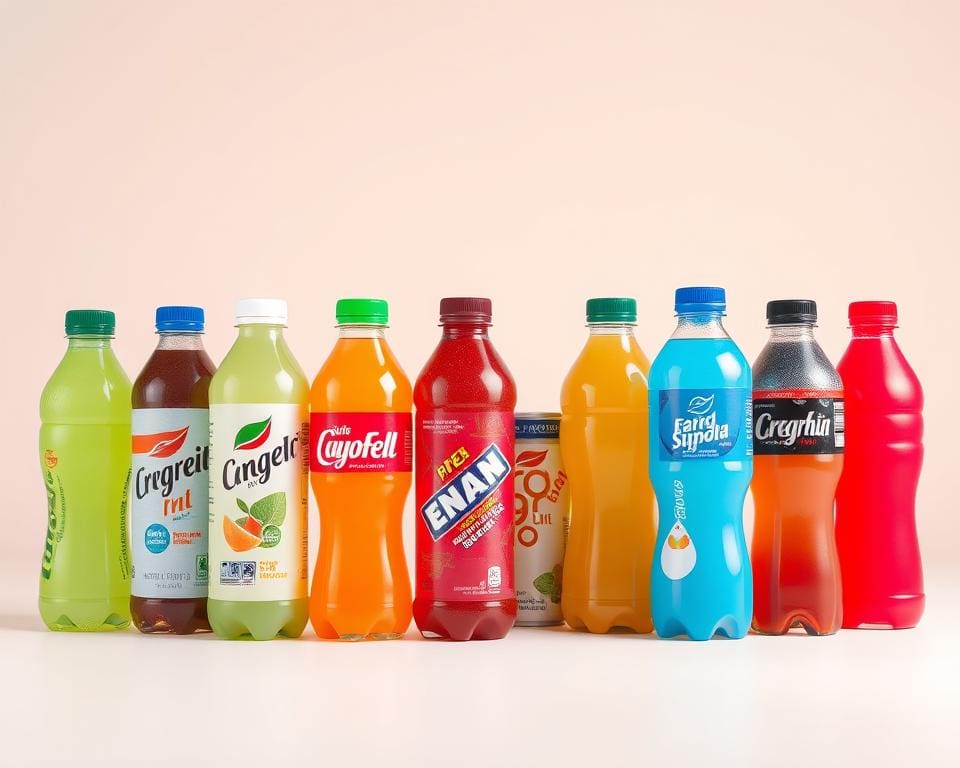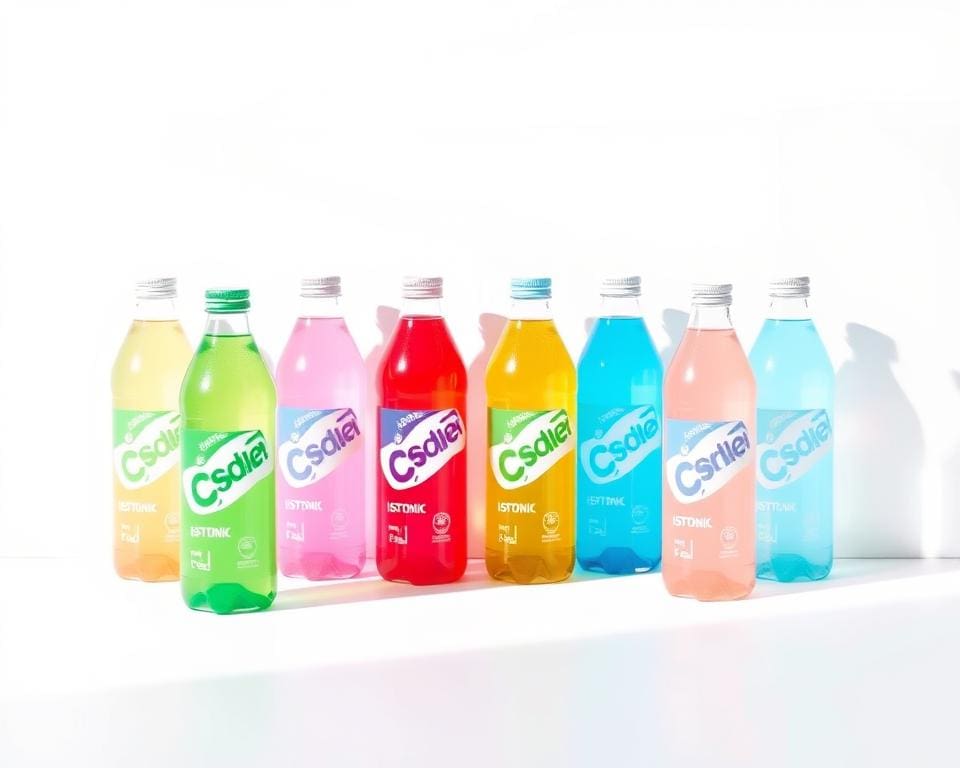In the realm of sports and exercise, maintaining optimal hydration is paramount for enhancing performance and recovery. Isotonic sports drinks have surged in popularity, not only among elite athletes but also fitness enthusiasts seeking to maximise their training efforts. These beverages are designed to replenish fluids and electrolytes lost during intense activity, making them essential for those looking to perform at their best. Understanding how many isotonic drinks per day should be consumed is crucial for anyone serious about their hydration strategy. As we delve deeper into the science behind isotonic hydration, we will uncover the optimal isotonic drink amount tailored to individual needs.
Understanding Isotonic Drinks
Isotonic sports drinks have gained prominence among athletes and fitness enthusiasts for their ability to replenish lost fluids and electrolytes effectively. The definition of isotonic drinks highlights their balanced concentration of sugars and salts, which enables rapid absorption into the body, enhancing hydration during physical exertion.
What Are Isotonic Sports Drinks?
These beverages are formulated specifically to match the body’s natural fluid levels, making them an ideal choice for rehydration. Popular brands like Lucozade Sport and Gatorade have created isotonic sports drinks that not only quench thirst but also replenish essential nutrients after intense physical activities. This balance provides energy while ensuring that hydration occurs swiftly, promoting optimal performance.
The Science Behind Isotonic Hydration
The concept behind isotonic drinks relies on the science of osmosis, where fluids pass through cell membranes to maintain equilibrium. Isotonic sports drinks contain a specific ratio of carbohydrates and electrolytes, typically around 6-8% sugar concentration. This composition allows for quick hydration compared to hypotonic and hypertonic drinks, which either contain less or greater concentrations of solutes. Athletes often choose isotonic beverages to ensure they maintain peak performance levels without the risk of dehydration.

How Many Isotonic Drinks Per Day
Understanding the right amount of isotonic drinks to consume daily relies on various factors that affect individual hydration needs. Whether participating in intense workouts or just maintaining general wellness, recognising personal circumstances is essential for maximising the benefits of these beverages.
Factors Influencing Daily Intake
Several aspects come into play when determining how many isotonic drinks one should intake on a daily basis. Key factors affecting isotonic drink intake include:
- Physical activity levels: Higher levels of exertion naturally lead to greater hydration needs.
- Climate: Hot or humid conditions can increase sweat loss, necessitating more fluids.
- Individual body weight: Heavier individuals might require larger quantities to meet their hydration requirements.
- Dietary habits: A diet rich in salty foods may dictate the need for additional electrolytes, making isotonic drinks more suitable.
Recommended Daily Intake of Isotonic Drinks
While individual needs vary greatly, a general guideline suggests that athletes may benefit from one to three isotonic drinks per hour of intense activity. For those engaging in moderate exercise, one isotonic drink every couple of hours may suffice to complement hydration needs. It remains vital for individuals to assess their own requirements based on the outlined factors to achieve optimal hydration and performance.
Isotonic Drink Consumption Guidelines
Understanding the timing of drink intake is crucial for maximising the benefits of isotonic drinks. Proper hydration supports performance and recovery, making it essential for athletes and fitness enthusiasts to follow effective isotonic drink consumption guidelines to enhance their training.
When to Consume Isotonic Drinks
To optimise performance and reduce fatigue, consider the following timings for isotonic drink consumption:
- Pre-Workout: Consume isotonic drinks approximately 30 minutes before exercise. This provides the necessary energy and hydration for elevated performance.
- During Exercise: Sipping on isotonic drinks during activities, especially those exceeding an hour, helps maintain hydration levels and replenish lost electrolytes.
- Post-Exercise: Post-workout consumption aids recovery by restoring fluid balance and essential nutrients.
Best Practices for Hydration
Incorporating effective hydration strategies will further enhance your experience with isotonic drinks:
- Follow isotonic drink consumption guidelines and customise intake based on individual sweat rates.
- Monitor hydration levels and adjust the timing of drink intake according to environmental conditions and exercise intensity.
- Keep a consistent schedule to create a routine around isotonic drink consumption before, during, and after workouts.
Best Isotonic Drink Volume for Performance
Finding the best isotonic drink volume is essential for maximising athletic performance while ensuring proper hydration. The right balance allows athletes to stay energised without the risk of excessive calorie intake. Understanding optimal serving sizes plays a pivotal role in achieving this aim.
Optimal Serving Sizes
Research indicates that optimal serving sizes for isotonic drinks can vary based on individual needs and activity levels. Generally, a serving size between 300ml to 500ml is recommended for effective hydration during intense physical activities. This volume provides adequate electrolytes and carbohydrates, supporting endurance without overwhelming the body.
Comparative Analysis of Popular Brands
Examining various brands reveals different recommendations for the best isotonic drink volume. For example, brands like Lucozade Sport and Gatorade offer serving sizes that align closely with research findings. Their formulations maximise hydration and performance, making them popular choices among athletes. Understanding the specific guidelines for each brand helps athletes select the most suitable option based on their personal needs and preferences.
Isotonic Hydration Tips for Athletes
For athletes, maintaining proper hydration levels is crucial for optimal performance. Recognising the signs of dehydration can prevent potential setbacks during training and competitions. Awareness of one’s hydration status fosters better decision-making regarding fluid intake.
Signs of Dehydration to Watch For
Dehydration manifests through various physical signs which athletes must remain vigilant about. Common indicators include:
- Dizziness or light-headedness
- Dry mouth and thirst
- Reduced urine output
- Fatigue or lethargy
By understanding these signs of dehydration, athletes can take timely measures to replenish their fluids and maintain their performance levels.
Balancing Isotonic and Water Intake
Effective hydration goes beyond just consuming isotonic drinks. Athletes should balance these beverages with plain water. This combo ensures adequate fluid replenishment and supports the body’s needs. Regularly monitoring one’s hydration status is vital for achieving peak performance.
Safe Isotonic Beverage Consumption
Maintaining hydration safety is pivotal for athletes and active individuals, particularly when incorporating isotonic drinks into their routines. While these beverages can effectively replenish electrolytes and carbohydrates lost during strenuous activities, excessive consumption may lead to side effects, primarily due to high sugar content. It’s essential to approach isotonic drink consumption with moderation to support both performance and overall health.
To ensure safe isotonic beverage consumption, consider your individual health needs and dietary preferences. If you have specific health conditions such as diabetes, consult a healthcare professional to determine the most appropriate quantity of isotonic drinks for your lifestyle. The key is to balance these drinks with adequate water intake, particularly in non-competitive scenarios, as water remains a crucial component of hydration safety.
Incorporating isotonic drinks should enhance your hydration strategy rather than replace water entirely. Start with small quantities, observing how your body reacts during physical activity, and adjust accordingly. By practising mindful consumption, you can enjoy the benefits of isotonic beverages while safeguarding your health.









